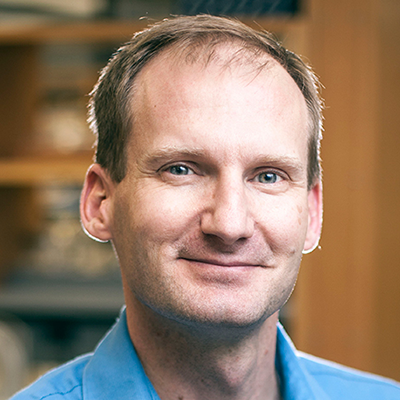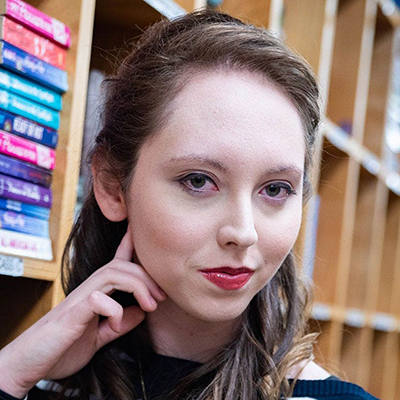Cortez named department chair; Hudson wins scholarship
Cortez named department chair
David Cortez, who has served as the interim chair of Vanderbilt University's biochemistry department since the start of this year, recently became the department's permanent chair. Cortez took over when the former chair, John York, left to become chief science officer at Impossible Foods.

Cortez's research group takes a multidisciplinary approach to study the biochemistry of proteins that respond to DNA damage and initiate repair. Using techniques from genetics, proteomics, cell biology and structural biology, his lab has studied replication stress, DNA damage responses and other pathways that control genome stability. One protein that they identified and have focused on recently is RADX, which regulates the forward movement of the DNA replication fork. If the DNA replication complex encounters damaged template DNA, the lab has shown, RADX promotes fork reversal. Conversely, if the template is undamaged, RADX inhibits fork reversal. The lab also works to develop cancer therapeutics that target DNA damage pathways.
Cortez received his Ph.D. from Duke University in molecular cancer biology and conducted postdoctoral research at the Baylor College of Medicine. He joined the faculty at Vanderbilt in 2002. Since then, he has been recognized with a variety of awards and honors: He is a fellow of the American Association for the Advancement of Science and has received awards from the Pew Charitable Trust, the National Cancer Institute, and MD Anderson Cancer Center.
Hudson wins ORAU scholarship
Olivia Hudson, an undergraduate at Tennessee Technological University, has received one of five 2021-2022 William G. Pollard scholarships from Oak Ridge Associated Universities.

Hudson, a sophomore, is an aspiring cardiologist. She is a member of her university's ASBMB Student Chapter and also participates in the school's Chemical Medical Club and Remote Area Medical Clinic. Additionally, she is a writer, with one published collection of poems and a finished novel draft that she hopes to sell.
Oak Ridge Associated Universities, or ORAU, is a consortium of schools based in Oak Ridge, Tennessee. It was founded in 1946 as the Oak Ridge Institute of Nuclear Studies, a project of 14 universities that aimed to provide training and workforce preparation in support of nearby Oak Ridge National Laboratory. Over time the consortium has shifted to a broader focus on science and education. The Pollard Scholarship is named in honor of the consortium's founder. It supports accomplished undergraduates whose parents are ORAU employees with a $2,500 scholarship.
Enjoy reading ASBMB Today?
Become a member to receive the print edition four times a year and the digital edition monthly.
Learn moreGet the latest from ASBMB Today
Enter your email address, and we’ll send you a weekly email with recent articles, interviews and more.
Latest in People
People highlights or most popular articles

Building a career in nutrition across continents
Driven by past women in science, Kazi Sarjana Safain left Bangladesh and pursued a scientific career in the U.S.

Kiessling wins glycobiology award
She was honored by the Society for Glycobiology for her work on protein–glycan interactions.

2026 ASBMB election results
Meet the new Council members and Nominating Committee member.

Simcox wins SACNAS mentorship award
She was recognized for her sustained excellence in mentorship and was honored at SACNAS’ 2025 National Conference.

From humble beginnings to unlocking lysosomal secrets
Monther Abu–Remaileh will receive the ASBMB’s 2026 Walter A. Shaw Young Investigator Award in Lipid Research at the ASBMB Annual Meeting, March 7-10 in Washington, D.C.

Chemistry meets biology to thwart parasites
Margaret Phillips will receive the Alice and C. C. Wang Award in Molecular Parasitology at the ASBMB Annual Meeting, March 7-10 in Washington, D.C.
